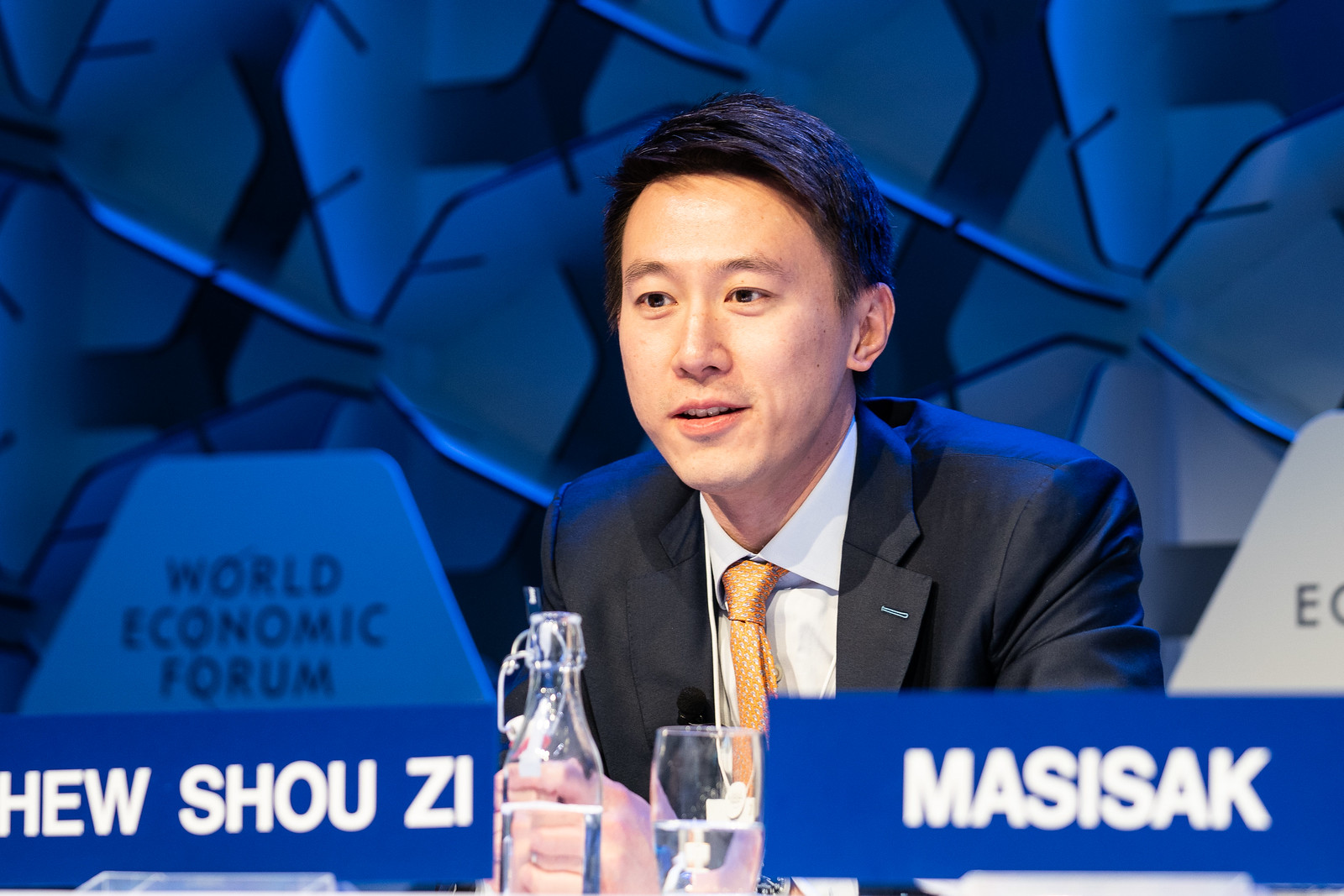
Photo: Chew Shou Zi/World Economic Forum (for illustration purposes only)
OPINION | When TikTok’s CEO Chew Shou Zi was called to the “Principal’s Office”
Singapore has a new hero. His name is Chew Shou Zi, and he is the 40-year-old CEO of TikTok, one of the most popular social networks in the world.
Mr Chew is in many ways like the rest of Singapore’s high flyers. He went to good schools (Hwa Chong, and University College, London, topped off with an MBA from Harvard University), served his National Service properly (went through Officer Cadet School), and at this point, the most interesting thing about Mr Chew is the fact that he succeeded in places beyond the ecosystem of Singapore Government Linked Companies (Goldman Sachs, Xiaomi and ByteDance).
However, while Mr Chew is undoubtedly the ideal Singapore “good boy,” the thing that has made him an overnight sensation is his testimony before the US Congress. Mr Chew was grilled by members of the US Congress over a period of four and a half hours. In that time, Mr Chew managed to do what no US politician in the last half century has managed to do – he united Republicans and Democrats in their efforts to crucify him and the company he runs.
I will leave comments on the US Congress grilling of Mr Chew to intelligent people. I will even leave comments on Mr Chew’s performance for another discussion. All I will do is leave a link to a snippet of his testimony:
What I will say is that I suspect that Mr Chew has become a hero in Asia and, more specifically, in Singapore because he’s done something that virtually none of our “elite” have ever done – he faced a firing squad willingly. He did not send his PR director or lawyers into the room. A man in his position would have known that the people questioning him were bound to be against him, yet he chose to face the music himself. The fact that he kept his cool throughout what can only be described as a grilling has won him a few fans.
In those four and half hours, Mr Chew has shown Singapore’s leaders, both past, present and future, that one of the most vital parts of being a leader is dealing with hostility. It’s easy to deal with people who are programmed to agree with everything you say because of who you are. It’s another story when you have to face people who are against you for the mere fact that you are who you are.
Looking at the self-help industry, you will notice that almost every “guru” points out that you only get “growth” when you leave your comfort zone. There’s a reason for this – it’s true. When you are in a comfortable place surrounded by people who like you, there’s no reason for you to up your game to become better. However, when you are in a hostile environment, you are forced to “up” your proverbial game to survive, and if you survive long enough, you may earn the respect of those who were initially against you.
Unfortunately, this lesson has been lost in Singapore’s leadership. You see this when you handle media relations. Whilst Singapore’s mainstream media is known for being different from Singapore’s political masters, you still get civil servants who are weary of journalists with a “negative history” towards their organization. My encounter with that phrase comes from my last agency job, where I was told by the client, a statutory board, to drop pitching an interview with a very senior journalist because of his “negative history” with the said statutory board.
The unwillingness of people in positions of wealth and power to face questions reached comical proportions when the then CEO of Singapore Press Holdings (I stress that this is a company that is a media company), Mr Ng Yat Chung proceeded to take “umbrage” at a reporter’s question at a press conference (which given that SPH was at the time listed, this would have been a question that the stock exchange would have insisted the CEO be prepared for).
The unwillingness to answer basic questions by people in positions of power is a cultural problem. It is a sign that people are probably more interested in the perks of the office they hold rather than in doing the job that they’re supposed to do. Jobs like CEO, CE or even Minister require constant thinking and adapting, and you can only do that if you have some form of “challenge.” So, when you are unwilling to answer the most basic of questions from people who are paid specifically to ask questions, it’s probably a sign that you got confused and thought CEO was spelt, GOD.
However, when you are willing to face hostility, you must become sharper. One of the best examples of how someone used the “hostile” interview is the theological scholar Raeza Azlan, who went on Fox News and ended up showing up his interviewer as being a small-minded slug:
Another example of someone who utilizes a hostile environment is US transport secretary Pete Buttigieg, who regularly appears on Fox News, a channel that has never been known to treat openly gay men holding left-of-centre political views too kindly. It seems that the strategy to talk to people on a “hostile” platform has worked:
The basic truth remains – you get growth when you leave your comfort zone and are willing to deal with people who are intrinsically against you. You become a fossil when you refuse to answer basic questions.
By being willing to go into the proverbial lion’s den, Mr Chew has shown that Singapore has talents if only the powers that be were willing to encourage those talents to develop.
A version of this article first appeared at beautifullyincoherent.blogspot.com
